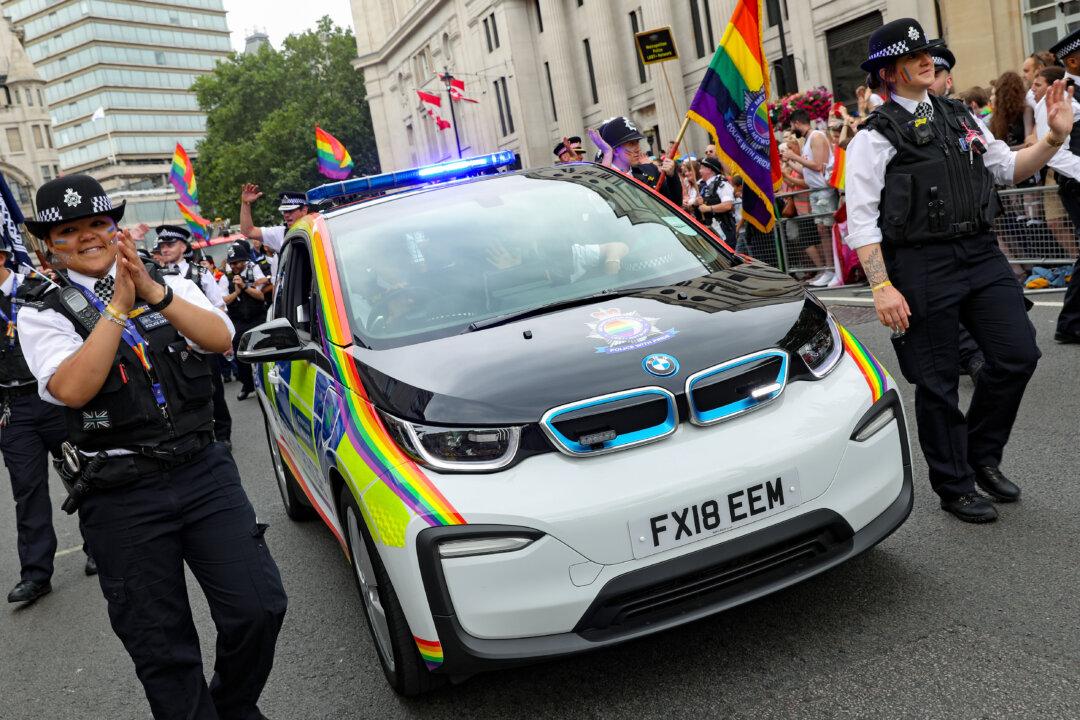
The Metropolitan Police during Pride in London 2019 parade in London
on July 06, 2019. Tristan Fewings/Getty Images for Pride in London
Metropolitan Police Commissioner Sir Mark Rowley has signaled he will clampdown on officers supporting “woke” causes to ensure impartiality.
Officers should engage with communities and understand “what worries them is not ‘woke,'” Sir Mark told The Telegraph. 




